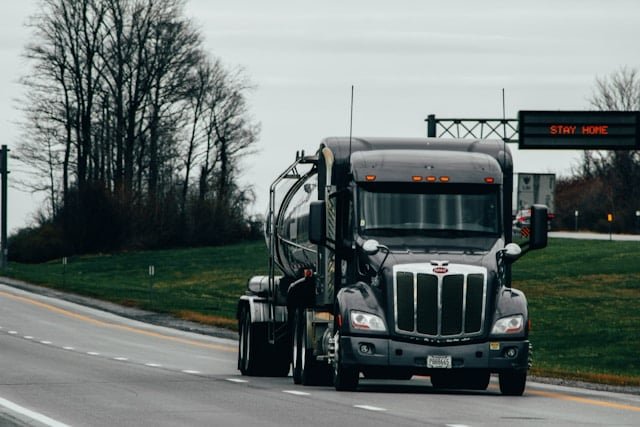Truck collisions are among the most severe types of motor vehicle accidents due to the massive size and weight of commercial trucks. In Charleston, where major highways and freight routes converge, these accidents can lead to catastrophic injuries, significant property damage, and complicated legal disputes. Understanding your rights, the legal process, and the resources available can help you navigate the aftermath of a serious truck collision.
Understanding the Scope of Truck Accidents in Charleston
The Charleston area sees a high volume of commercial truck traffic, partly due to its port activity and logistics operations. When a large truck collides with a smaller passenger vehicle, the consequences are often devastating. Victims may face prolonged medical treatment, lost wages, and lifelong disabilities.
Common Causes of Truck Collisions
Truck accidents can occur for many reasons, often involving multiple contributing factors. Some of the most common causes include:
- Driver Fatigue: Commercial drivers often work long hours, leading to reduced reaction times and impaired judgment.
- Distracted Driving: Using mobile devices, GPS systems, or other in-cab distractions can divert a driver’s attention from the road.
- Mechanical Failures: Poor maintenance can result in brake failures, tire blowouts, or steering issues.
- Improper Loading: Overloaded or unbalanced cargo can destabilize a truck, making it prone to rollovers.
- Speeding and Reckless Driving: Tight delivery schedules sometimes encourage unsafe driving behaviors.
Each of these causes requires careful investigation, as determining liability is central to any legal claim.
Immediate Steps After a Serious Truck Collision
After a truck collision in Charleston, your actions in the first few hours and days can significantly affect your ability to recover compensation.
Seek Medical Attention
Even if you do not feel immediate pain, seek prompt medical care. Internal injuries, traumatic brain injuries, and whiplash may not manifest symptoms right away. Medical documentation will also serve as critical evidence for your claim.
Report the Accident
South Carolina law requires drivers involved in accidents resulting in injury or death to report the incident to the police. In truck accidents, law enforcement and sometimes federal investigators will examine the scene.
Gather Evidence
If you are able, collect photographs of the vehicles, roadway, weather conditions, and any visible injuries. Obtain witness contact information and the truck driver’s credentials, including their employer and insurance details.
Avoid Early Settlement Offers
Trucking companies and their insurers often attempt to settle quickly—sometimes before the full extent of injuries is known. Accepting an early offer may leave you with insufficient compensation for future medical expenses and lost income.
Legal Avenues for Compensation
Victims of truck collisions may pursue compensation through several legal channels. The right approach depends on the specific facts of the case and the parties involved.
Personal Injury Claims
If the truck driver or trucking company’s negligence caused the accident, you may be entitled to file a personal injury lawsuit. In South Carolina, you must prove:
- The defendant owed you a duty of care.
- They breached that duty through negligent or reckless conduct.
- The breach directly caused your injuries.
- You suffered measurable damages as a result.
Wrongful Death Actions
If a loved one dies in a truck collision, surviving family members may file a wrongful death lawsuit. Damages can include funeral costs, loss of financial support, and loss of companionship.
Product Liability Claims
When a defective truck part contributes to an accident—such as faulty brakes or a defective tire—you may pursue a claim against the manufacturer or distributor.
Workers’ Compensation
If you were injured in a truck collision while performing job duties, you might be eligible for workers’ compensation benefits. These can cover medical costs and partial wage replacement, regardless of fault.
Key Parties Potentially Liable in a Truck Collision
Truck accidents often involve multiple liable parties, making the legal process more complex than typical car accidents.
- Truck Driver: Responsible for following traffic laws, managing fatigue, and ensuring their vehicle is safe to operate.
- Trucking Company: May be liable for negligent hiring, inadequate training, or pressuring drivers to violate safety regulations.
- Cargo Loaders: If improper loading contributed to the accident.
- Maintenance Providers: Responsible for keeping the truck in safe operating condition.
- Manufacturers: If defective parts played a role.
Identifying all liable parties is crucial for maximizing your potential compensation.
Federal and State Regulations Governing Trucks
Commercial trucking is heavily regulated at both the federal and state levels. Understanding these rules can be vital in proving negligence.
Federal Motor Carrier Safety Regulations (FMCSR)
The FMCSR sets strict guidelines on driver qualifications, hours of service, vehicle maintenance, and drug/alcohol testing. Violations can be powerful evidence in a truck accident claim.
South Carolina State Laws
South Carolina enforces additional rules on weight limits, inspection requirements, and hazardous materials transport. Failure to comply can lead to both civil and criminal penalties.
The Role of an Experienced Truck Accident Attorney
Truck accident cases often require specialized legal knowledge, extensive investigation, and the ability to confront well-funded corporate defendants. Skilled attorneys can:
- Collect and preserve critical evidence, including electronic logging device (ELD) data.
- Work with accident reconstruction experts.
- Negotiate with insurers and corporate counsel.
- Represent you in court if necessary.
For those seeking truck accident representation in Charleston, finding a legal team with a strong track record in complex trucking cases is essential.
Proving Liability and Damages
Proving liability in a truck accident requires more than just showing that a collision occurred. Evidence may include:
- Police and accident reports.
- Driver logbooks and ELD data.
- Maintenance and inspection records.
- Witness statements.
- Black box (event data recorder) information.
Damages in a truck accident claim can cover:
- Medical expenses (past and future)
- Lost wages and loss of earning capacity
- Pain and suffering
- Emotional distress
- Property damage
In some cases, punitive damages may also be awarded if the defendant’s conduct was especially reckless or malicious.
Statute of Limitations in South Carolina
In South Carolina, most personal injury claims—including truck accidents—must be filed within three years from the date of the accident. Wrongful death claims share the same time frame, starting from the date of death. Missing this deadline can permanently bar you from seeking compensation.
Settlement vs. Trial
Many truck accident cases resolve through settlement negotiations. However, if the insurer refuses to offer fair compensation, proceeding to trial may be necessary. An attorney can help weigh the potential benefits and risks of litigation.
Settlement Benefits
- Faster resolution
- Lower legal costs
- Less emotional stress
Trial Considerations
- Potential for higher awards
- Public record of wrongdoing
- Opportunity to hold the defendant fully accountable
Resources for Truck Accident Victims
Navigating the aftermath of a truck collision can be overwhelming. Several reputable resources provide helpful guidance:
Conclusion
A serious truck collision in Charleston can have life-altering consequences, both physically and financially. Knowing your legal options—from personal injury claims to product liability suits—can empower you to make informed decisions. With the help of an experienced attorney, you can pursue the compensation you need to recover and move forward.
Whether you are dealing with medical bills, lost wages, or the loss of a loved one, acting promptly and strategically is key. Understanding your rights, gathering evidence, and securing strong legal counsel will give you the best chance of achieving justice after a serious truck accident.



![How to create a social media report [free template included]](https://mgrowtech.com/wp-content/uploads/2026/01/social-media-report-350x250.png)












